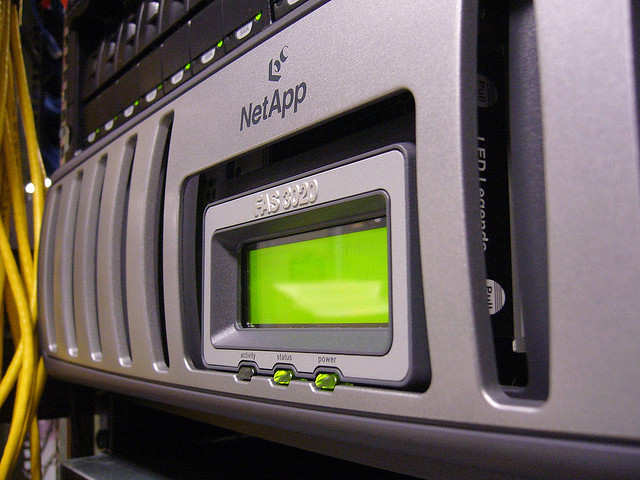
This summer, the Supreme Court made it easier for defendants to collect fees when they win patent cases. The decision is starting to have an effect—the nation's largest patent troll just got slapped with an order to pay $1.4 million in attorneys' fees to NetApp, which it sued in 2010.
The case brought by Summit Data Systems, a branch of Acacia Research Corp., hinged on an accusation that NetApp infringed when its server-based software interacted with an end user on a Microsoft operating system. The two patents-in-suit, 7,392,291 and 7,428,581, relate to "block-level storage access over a computer network."
But just two months before Summit filed its lawsuit, it sold licenses for those patents to 43 companies that were member companies of defensive patent aggregator RPX—including Microsoft.
"Nonetheless, Summit brought suit against NetApp barely two months after executing the Licensing Agreement," wrote US District Judge Gregory Sleet in his order (PDF), which was unsealed on Tuesday. "It then took Summit 18 months to disclose the existence of the Licensing Agreement to NetApp."
Summit's expert said that Microsoft users infringe the patents, but he couldn't determine whether Linux or UNIX systems infringed because he "didn't have time."
Sleet continued:
The facts of this case demonstrate that Summit pursued an action against NetApp without any basis for infringement, delayed disclosing the existence of the Licensing Agreement for eighteen months, extracted settlements from co-defendants worth a fraction of what it would actually cost them to defend the lawsuit, and then voluntarily dismissed its claims with prejudice prior to the court issuing a ruling on the merits... The claims were frivolous—Microsoft's initiator software [was] licensed, so no system employing it could infringe the asserted patents. Summit's motivation was to extract quick settlements that were dwarfed by the costs to litigate. Summit was objectively unreasonable in bringing a lawsuit against NetApp mere months after executing the Licensing Agreement that effectively eliminated its theory of infringement. Finally, the court is convinced that an award of attorneys' fees in this case is necessary to deter this sort of reckless and wasteful litigation in the future.
Seeing a pattern of settlements
Sleet noted Summit's pattern of settling its claims for much less than the cost to litigate. None of Summit's settlements were for more than $175,000, and EMC was dismissed from the case with no payment at all, so long as it gave up its right to seek attorneys' fees.
In June 2010, Summit struck a deal with the patent aggregator RPX, which paid for licenses to 43 of its member companies, including Microsoft.
After the suit was filed, Fujitsu and Netgear also paid for licenses through RPX. Following claim construction, Hitachi paid $60,000 to settle the case; D-Link paid $170,000; and Buffalo Technology paid $150,000. Another defendant, Infortrend, settled after discovery for $125,000.
That's much less than the cost of fighting a patent in court, which can cost $3-4 million if the case goes through a jury trial.
Doug Luftman, NetApp's chief IP lawyer, called the case a "decisive sanction victory" for his company. "NetApp is pleased to continue our record of success with questionable patent suits."
A spokesman for Acacia said the company "respectfully disagrees with the court's finding" and is considering further legal options, including appeal.
Acacia is a patent-holding company that's publicly traded on NASDAQ, and it's sometimes considered the largest "patent troll," since its various subsidiaries have filed more patent lawsuits than any other single company. The NetApp fee order is Acacia's second major setback in recent months. In July, an Acacia unit holding an old Polaroid digital imaging patent lost a big case in which it was seeking royalty payments from 31 companies.
reader comments
50